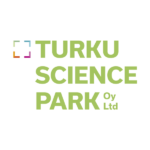Boost Biosystems FP6 ran from October 2006 until October 2008.
The objective of the project was to boost collaboration of SME and academia by initiating RTD consortia in the cross disciplinary field of BIOSYSTEMS technologies and network the players for a thematic cluster in the ScanBalt BioRegion.
Biosystems technology is a cross disciplinary field and players come from several sectors. The lack of interaction between players and the general lack of knowledge of users (clinicians), suppliers (including academic suppliers of specific assays) and markets impedes the introduction of innovative biosystems technologies to the sectors. These technologies are presently not adequately implemented in big industry, SMEs and clinical routines, leaving a huge potential between suppliers and users of biosystems technology which has not yet been developed.
To add value to this cross-disciplinary field, transregional competences from the biotech- and the microsystems sectors, both from academic and industrial players, must be joined to create innovations out of a critical mass. SMEs are key actors in this value chain as motors of innovation but often lack the necessary academic and industrial partners for this interdisciplinary approach.
This EU support action BOOST BIOSYSTEMS focussed on biosystems technology within the EU FP Thematic Priority 1 (Life Science/Biotechnology) including both technical (diagnostics, in vitro tests, pharmacogenomics and postgenomic applications) as well as disease related aspects. Improvements in biosystems technologies target unanswered questions in the diagnosis and therapy of major diseases in developed countries (cardiovascular diseases, diabetes, neurodegenerations, aging related disorders, cancer) as well as providing effective and non expensive diagnostics for poverty related diseases.
Boost Biosystems realised a set of support actions for breaking inter-sectoral barriers, networking and the promotion of RTD collaboration between SMEs and academia. These were approached on a regional level, through teching about the potentials of biosystems technologies and the instruments of EU RTD programs. On transnational level, SME’s competitiveness was bboosted through partner matching for EU RTD projects, industry site visits and first hand information of clinical demands will support this by introducing the potential of industry and RTD consortia to unmet medical needs.
Partners
- Steinbeis Northeast, Germany – Frank Graage
- ScanBalt – Beata Grablevska, Elise Kvarnström
- Tartu Biotechnology Park, Estonia – Andrus Tasa
- Norgenta GmbH, Germany – Hans Kuhn
- Culminatum Ltd. Finland – Riikka Paasikivi,
- Center of Technology Transfer, CTT, Poland Katarzyna Podhajska-Średniawa












